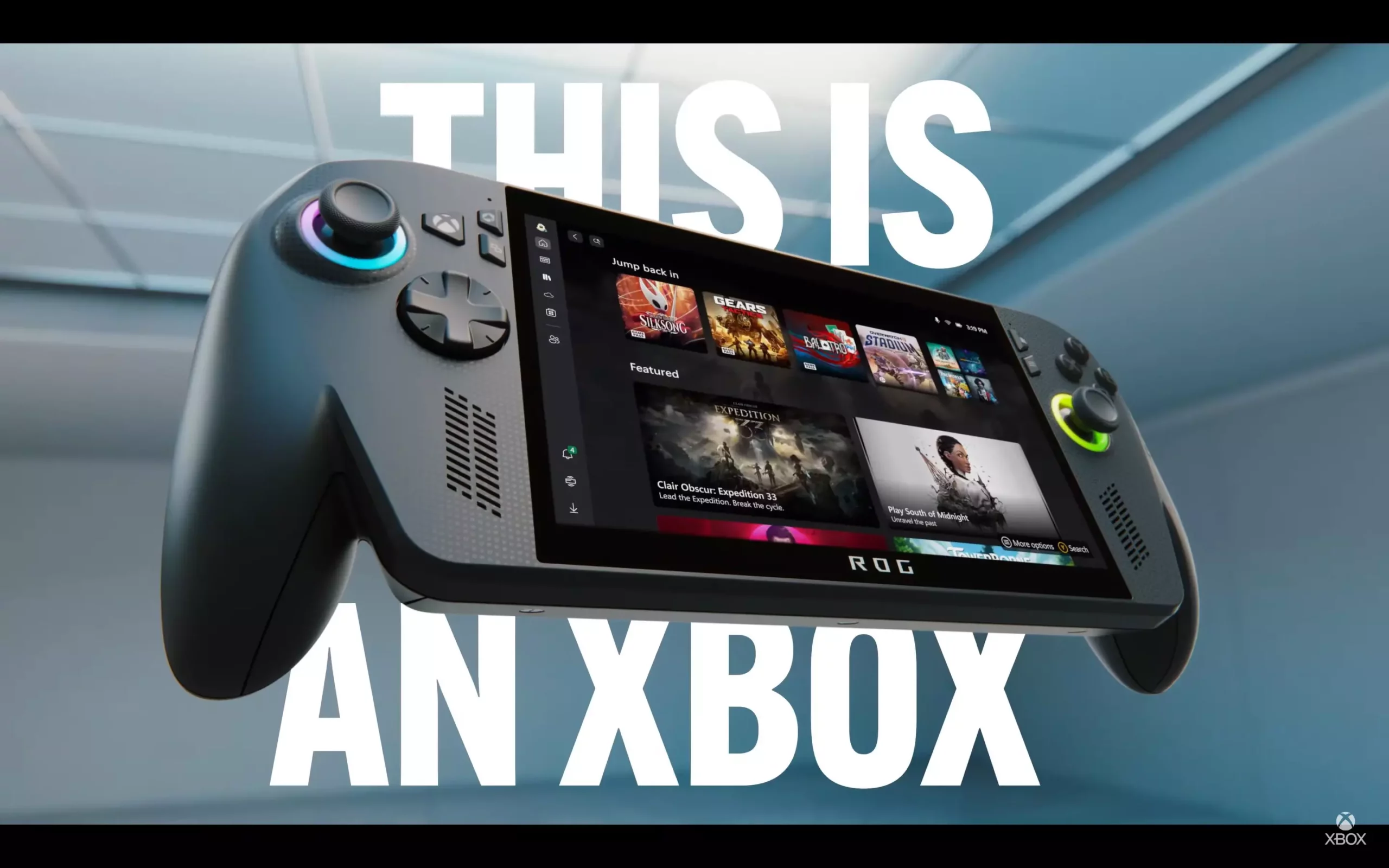Microsoft’s recent collaboration with Asus to create a portable gaming device represents an exciting venture that could redefine the handheld gaming landscape. Touted as an “Xbox you can hold in your hands,” the release of two new devices—ROG Xbox Ally X and ROG Xbox Ally—signals an intriguing shift towards a more accessible and adaptable gaming experience. This initiative not only points to the evolution of gaming but prompts us to reconsider what an Xbox truly is in the contemporary gaming ecosystem.
Under the Hood: Power and Performance
Let’s delve into the specifications powering these devices, particularly focusing on the Z2 Extreme and Z2 A chips. The Z2 Extreme configuration boasts 16 RDNA 3.5 GPU cores coupled with 8 Zen 5 CPU cores, offering remarkable performance that leverages the latest gaming technologies. This potent combination positions the ROG Xbox Ally X as a frontrunner in the handheld market, boasting capabilities that can rival many traditional gaming consoles. However, the Z2 A configuration raises eyebrows, featuring only 8 outdated RDNA 2 GPU cores and a paltry 4 Zen 2 CPU cores. For enthusiasts, this essentially depicts an underwhelming upgrade lacking in competitiveness, particularly if it is expected to be more affordable than the Steam Deck.
The concern here is palpable: having an inferior product under the Xbox brand might dilute its powerful reputation, especially if the Z2 A is priced similarly to devices that offer superior value. For a device marketed under such a dynamic umbrella, user expectations are sky-high, and anything below par could lead to disappointment and disillusionment.
A PC With an Xbox Twist
Interestingly, these handhelds are fundamentally Windows 11 devices disguised in an Xbox form. This hybridization offers a double-edged sword; while PC gamers can revel in the vast libraries available through multiple game storefronts, it begs the question of entitlement to the Xbox moniker. If an Xbox is now merely a Windows-powered device with a familiar interface, then what does that mean for the traditional gaming community? It reduces the essence of Xbox to mere aesthetics without delivering the unique experiences and exclusivity typically associated with the brand.
However, the potential to navigate through one’s PC game library using a compact, Xbox-styled form factor is enticing. Gamers can anticipate the convenience of accessing their comprehensive collections while enjoying hand-held portability. The outcome could lead to an entirely new level of gaming, where accessibility is key and cross-platform interaction becomes commonplace.
The Competitive Landscape: An Uphill Battle
Despite the innovations Microsoft and Asus are scripting, there are clouds of uncertainty looming on the competitive horizon, particularly in light of the recent SteamOS launch on devices like the Lenovo Legion Go S. SteamOS has proven to be highly efficient for handheld gaming, creating a smooth user experience that enhances gameplay. To keep pace, Microsoft must ensure that its new user interface proves not only functional but also user-friendly. A clunky interface on smaller devices can easily undermine usability, so clarity in design and simplicity in navigation will be crucial to provide a compelling competitor to Steam’s streamlined offerings.
As we move closer to the anticipated launch in “holiday 2025,” pre-launch skepticism will surely simmer among gaming communities. Can Microsoft genuinely carve out a niche for Xbox handhelds amidst rising contenders? And how will pricing strategically position ROG Xbox Ally and its siblings within the broader gaming market? Only time will tell if this gamble pays off, but the stakes are undeniably high.
What Lies Ahead for Xbox and Asus
The evolution towards a comprehensive gaming ecosystem underpinned by these handheld devices has significant implications. It forces a reevaluation of brand identity in the tech world—what constitutes an Xbox, and how adaptable can traditional gaming brands be in an age where versatility becomes paramount. The direction that Microsoft and Asus take with the ROG Xbox Ally could set profound precedents, not only for their products but for competitors as well.
Moreover, this venture could ignite conversations about the future of gaming itself. Will we continue to see robust, dedicated consoles, or are we witnessing a gradual transit towards handheld dominance? The prospect is exciting, shrouded in both uncertainty and transformative potential. As we await the arrival of the ROG Xbox Ally, one thing is certain: the landscape of gaming is about to change dramatically.

